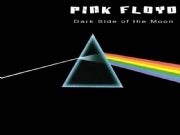For some people, the Internet is the killer app--literally. From newspapers and the yellow pages to personal privacy and personal contact, the Net has been accused of murdering, eviscerating, ruining, and obliterating more things than the Amazing Hulk. Some claims are more true than others, but the Net certainly has claimed its share of scalps.
Here are ten things the Net is making virtually extinct, plus five that have flourished.
1. Trust in Encyclopedias

When I was a kid, if something was in the Encyclopedia Britannica (or even Grolier's), it was true. Now--thanks to Wikipedia--having "encyclopedic knowledge" of a topic isn't as impressive when there's a good chance most of what you think you know was concocted by a 12-year-old. After a 2005 study by the British journal Nature showed Britannica and Wikipedia to be equally inaccurate, faith in all encyclopedias plummeted. Britannica attacked that study's methodology as "fatally flawed," but it was too late.
Also dead: trust in studies of encyclopedias.
2. Barroom Arguments
It used to be you could kill many hours and even more brain cells drinking beer and arguing over arcane trivia. Who was a more fearsome slugger, Babe Ruth or Hank Aaron? Who'd win a one-on-one match between Kobe Bryant and Doctor J? (Sorry Kobe--we love ya man, but in 1972 the Doc was unstoppable.) Now whenever there's a question of fact, somebody just whips out a smartphone and does a search on Google or dials up Wolfram Alpha and runs a statistical analysis. Where's the fun in that?
3. Your Old Flame
No matter the state of your current relationship, it used to be possible to escape for a few minutes by pining for the one(s) that got away. In your mind, they're just as hot as they were decades ago when they were captain of the football team or homecoming queen. But now they're on Facebook. Guess what? Assuming their pictures are current, they're just as old and fat as you are.
The good news? You might not care. There's a reason Facebook was named as a contributing cause in 20 percent of divorces last year. And be careful whom you poke; British researchers noted a rise in sexually transmitted diseases due in part, they said, to people hooking up on social networks.
4. Civil Discourse

The niceties of polite disagreement are mostly dead, thanks to the Internet. Rudeness and name-calling have devolved into forms of entertainment; entire sites are devoted just to cataloging flame wars. Artist Mike Reed has caricatured the various breeds of online forum jerks for this very Website. And though you may find some some discussion boards and community sites that still encourage good manners and penalize offenders, they are becoming increasingly rare.
Disagree? See me in the Comments (below) and we'll fight about it, ***clown.
5. Listening to Albums

Remember putting "Dark Side of the Moon" on the turntable or slipping "Graceland" into your CD tray? Your kids won't. Not only will the concept of music delivered via molecules--hard media--seem totally 20th century, but the entire concept of an album (let alone a "concept album") will be lost on them. Over the past decade, sales of complete albums--even the nonmolecular versions--declined 55 percent to less than 400 million in 2009, according to Nielsen SoundScan. During roughly the same period, sales of individual digital tracks have soared from zero to nearly 1.2 billion.
Apple iTunes and file-sharing networks have nearly obliterated the notion of listening to more than one song by one artist in a row. "Gee Dad, what did you do before Apple invented 'shuffle'? God, you're so old."
6. Expertise

Before the Web, if you wanted call yourself an expert, you usually needed expertise in some field. Now all you need is a blog and sufficient quantities of chutzpah. For example, in a recent survey by PR Week, 52 percent of bloggers call themselves "journalists." Because calling yourself a "typist" isn't nearly as impressive.
Continue Reading over at PCWorld.comDid you like this post? Leave your comments below!
Found this Post interesting? Receive new posts via RSS (What is RSS?) or Subscribe to CR by Email





